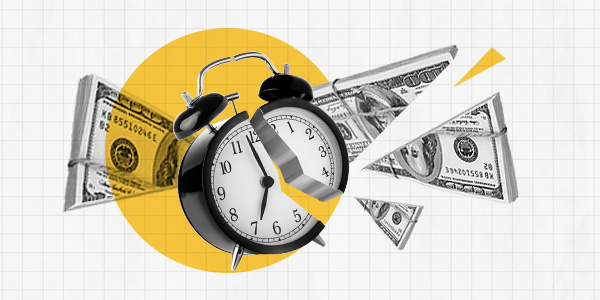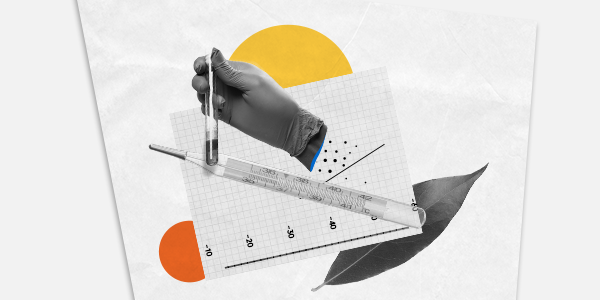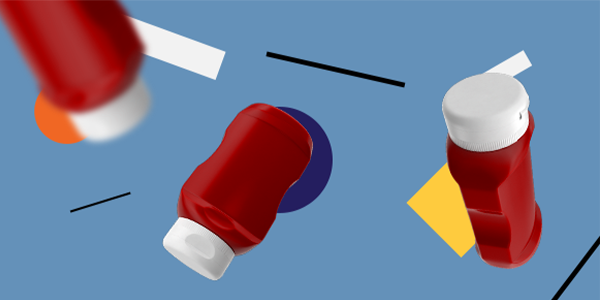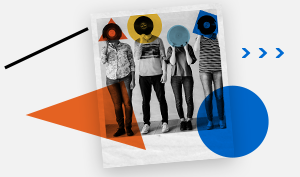
Michael Norton is the Harold M. Brierley Professor of Business Administration at the Harvard Business School and the co-author (with Elizabeth Dunn) of Happy Money: The Science of Smarter Spending. Michael’s work on a range of topics related to decision-making and consumer behavior has had significant impact within academia and beyond. His work has been published in top academic journals, like Science and the Quarterly Journal of Economics, and he is a member of Harvard’s Behavioral Insights Group. His research has been featured in leading media outlets, and in addition to co-authoring a book, he has written influential op-eds for popular outlets, including the New York Times. His TEDx talk, How to Buy Happiness, has been viewed more than 4 million times, and his innovative ideas have been featured in the NYT Magazine Year in Ideas issue, recognized in HBR’s Breakthrough Ideas, and he made Wired Magazine (UK)’s Smart List as one of “50 People Who Will Change the World”.
In this conversation, Kelly and Michael discuss rituals, routines, and behaviors in the face of a pandemic, some of the quirks of the way we do things, sometimes in very specific ways, and what that can tell us about human behavior.

Kelly: One of the things that you have looked at in the past extensively is rituals. How has the pandemic affected your scholarship in that area?
Michael: We started a project on parenting rituals. We had been thinking about studying parenting rituals anyway, because my student Ximena Garcia-Rada studies decision-making in couples, broadly defined, which is a totally fascinating area of research because so many decisions are made in couples, and we don't know that much about it. The idea, originally, was to study how parents use rituals with their kids in general, at bedtime, and getting them to eat their vegetables, and whatever, and if you are or have ever been a parent, you know that parents instinctively create rituals.
We don't call them rituals, but somehow when we're trying to get our kid to do something, something in us is like, ‘let's make it into a thing’. Let's do this bunny first, and then that story, and then we'll go see that person, and then we'll do that story, and then we'll get in bed with these three stuffed animals and then we will go to bed. Violating it is absolutely unacceptable and carrying it through is sometimes helpful in getting the kid to do the thing, go to bed or whatever. We totally use them all the time without realizing it, so we wanted to study that. Just what are parents doing with this?
Then the pandemic happened as we were starting to study that, and then the question became 'How are those rituals changing?' So, in a couple of surveys that we've done since this began, we've just asked parents, ‘do you have any new rituals?’ What's been happening is that every time we do the survey, more and more parents say yes. It's as though many of them have, and then a couple of weeks later when we ask again, more have adopted rituals a couple weeks later. If we ask again, more have, which suggests some people are faster to it, but everybody's sort of getting there.
What they’re adapting them for is, in the old world, it was like bedtime and vegetables and homework and stuff. Then in the new time, when we say, ‘what are the rituals for?’, it's kind of obvious but it was so interesting to us, hand washing and mask wearing. So, when the new thing comes into the world, and the kids need to do it, we also, at least in part, grab rituals to try to help kids do that. We make up a thing for wearing the mask, or we make up a thing for washing their hands. Again, the idea is that it can maybe help promote the behavior. We can't observe the kids’ behavior, but we can observe that parents who use rituals report feeling better about their parenting. At least subjectively, having a ritual seems to help how you're feeling about your parenting. Obviously, maybe parents who feel good create rituals; we haven’t done an experiment, so we don't know for sure, but it's so interesting to me that we turn to them. When a new thing comes to the world, we say, ‘what can we do?’ We do a million things, but one of the things we do is try to start some new rituals.

Kelly: I think understanding the role of rituals and the way people use them is very important because we have the opportunity to share those rituals that other people discover, and help people that hadn't thought of those ideas to incorporate that practice. So, there's a sharing effect and then there's also the benefit of it being very self-reinforcing. I think it's probably good to just step back for a second and help people understand the difference between a routine and a ritual, and what that sort of magical difference leads to.
Michael: So, the first answer is that distinction is very slippery and fuzzy. My answer will be very frustrating probably. In part because I think it's inherently slippery, and in part maybe because we just haven't nailed it yet as scientists. Many habits, rituals, and routines look alike. Then there's lots of rituals that don't look like routines and habits. So, you can think about a funeral, which isn't really a routine that you do every day, or a wedding; hopefully you only do that once or a couple times in your life. So, there are some rituals that we know are not single shot, but they don't have the element of habit like, ‘I need to do it repeatedly, and if I fail, it's a bad thing’. Funerals, you don't feel like you failed if you did it wrong or something like that; they're a little bit different. I think, though, for the ones that are similar, like habits and rituals being close, I always think of it as habits are the behaviors themselves, and rituals are the other meaning things that you add around it.
This is a cheesy example, but we've asked many, many groups of people, ‘if you think about the morning, what do you do first? Do you brush your teeth and then take a shower, or do you take a shower and then brush your teeth?’ Which one are you actually?
Kelly: I'm a multitasker.
Michael: You do them both at the same time.
Kelly: Yes, I hop in the shower, and I keep the toothbrush and toothpaste there.
Michael: So, what's fascinating is people will be judging you very harshly if they do a different thing, but if they do the same thing, they'll say, ‘Oh, she's good. I like her’. It's weird. In the population of the world, of people we have surveyed, it's roughly 10% that do it at the same time, and then the other remaining is 50/50. So, half of people brush first and then shower, and half shower and then brush. Which is, first off, bizarre because if you ask people, ‘why do you do it in that order?’, no idea. If people say, ‘my way is the good way’, and I say, ‘oh, did you one time for a month alternate every day and keep track of which was better?’ Of course not. When did you start doing it that way? No idea. We just do them that way. Then, if I ask people to think about switching it, ‘tomorrow, do you want to do it in another order?’, again, about half of people say sure, that's totally fine, ‘Yeah, brush my teeth, shower, doesn't matter’, and about half of people say ‘No, I'd rather not change the order.’ If you ask why, they say, ‘I just feel better when I do it my way; it makes me feel like I'm ready for the day, and if I think about doing it the other way, I think I'd feel a little off.’ My day would feel a little off. These are the sorts of words they use; off, not ready, and things like that.
Habits and rituals, the people who say, ‘sure, either order doesn't matter’, they sort of have a habit. They do those things in the morning, and they get them done. The ritual is on this continuum. If you start to care about the order, without really being able to explain it, and if doing it in the order you like makes you feel better than doing it the order you don't like, now we're moving toward rituals. The order of things matters to you. Probably the time you do it starts to matter to you, if you're like a minute late; and other people are like, ‘what does it matter when I brush my teeth?’ All of those things about the specificity and the feeling move you further toward a ritual. Is it like a ritual ritual? Like a communal funeral? No, of course not, but it's further along. That's sort of how I think about it. There are elements that move us from mundane behaviors all the way up.
The most frustrating thing, as a scientist, two people doing the exact same behaviors, one of them can be doing it and it's a habit, and the other one can be doing it and it's a ritual. So, we can't even say if you brush your teeth like this versus that, because if you brush and then shower and somebody else brushes and then showers, for one person, it's just a habit, and another person, it's a ritual. That makes it really hard to tell which one is which. If you've ever been to religious services for a faith that you're not a part of, you do the same things because you want to fit in. So, from the outside, it looks like you and the person next to you are both performing a ritual, but the person next to you, they're thinking about their family and their grandparents and history, and you're thinking about nothing religious at all. You're just trying to fit in. So, again, it looks like everyone's doing a ritual, but some people are going through the motions and for other people, it really is meaningful.

Kelly: Now as employers either continue to manage the essential workforces that have stayed out there, running the economy to the best of their ability, and now more and more employers are starting to prop open the doors and bring their employees back, what are some of the learnings besides just ‘here's the policy’? What are the rituals that employers can use to strengthen compliance with those guidelines? And what are some of the human insights that need to be taken into consideration?
Michael: We have looked a little bit, actually, in a different project, at workplace rituals in general; not specific to the current situation, but just in general. By workplace rituals, I don't mean something bizarre. I mean, when we start meetings, we do this kind of thing where this happens and then that happens. ‘We didn't do that at my old company’ kind of things. So, there's these little things that sort of tell you that you're at the company. If you start at a new job, everything feels weird for a while. How do they do things around here? A lot of that is just the implicit little things they do to start and end things, and stuff like that. After a while, it becomes normal to you as well.
So, we see people have, in the workplace, these rituals, both in groups, and then also at their own desk, like getting ready for your day and when you are leaving at the end of the day. We know they're there, which is good in a sense that we do use this kind of psychology at work.
How to use it to help people follow these behaviors, I don't know yet.
I do think that in general, the rituals at work that people hate are ones that their managers say, ‘we all have to do this from now on at the beginning of every meeting because I saw some webinar or something where somebody said we should do them,’ and then everybody hates the person who made them do it. The ones that seem to be more effective or meaningful are ones that people came up with themselves. It has elements of us in it, and that's our team ritual, not something that was from a book or imposed by somebody else. I'm just speculating, but when we get guidelines that say, do it this way, this way, this way, it might be important to have people think about how they want to implement that. How are we going to do ‘we can't sit closer than x feet together?’ How are we going to sort that? Not that HR gives us a new seating plan but let us try to develop it in a way that that feels right to us. There's risk, of course, because we might do it wrong, obviously. I'm not saying it's a win-win perfectly. It gets rid of a little bit of the reactance, like ‘I refuse to do it just because I refuse to do it’.

Kelly: One of the things that is emerging from the pandemic is how people think about science, and there's a whole host of challenges and opportunities. Some are how people approach their understanding of SARS-CoV-2, based on their belief systems, and some of the dynamics are happening within the scientific community itself, including the desire to help.
As a social scientist, not feeling the same level of ability to help, because you're not necessarily an epidemiologist, or virologist, or healthcare worker; all of these scientists are able to make immediate life-saving contributions. So, here we are with social science, in particular, moving very rapidly. Things are hitting preprint servers very quickly. Data is sometimes being shared, sometimes not.
How do you think social science has been doing overall, in terms of how it's contributed, what we've learned, and what the field should do better?
Michael: What's important, I think, for all scientists is to stay in your lane. I think scientists start to speculate about things that they know nothing about. There's an outdated cultural reference from Happy Days. There was this phrase, ‘jump the shark’. In case people don't know, Fonzie was this cool guy, and the ratings were declining, so they had an idea that they would have him jump over a shark, and then everyone would watch because it would be great. It's basically, you've lost all sense of bearing and you've jumped the shark. We see scientists go that route, but very few. Actually, most scientists stick with their data and what they know.
It's tempting now to go beyond what you know because you want to help. So, if someone says, ‘how exactly should we put these chairs so that people will follow the rules’, you want to say, ‘based on some things we know, do it like this’, because you want to help. Sometimes we do know from what we already know, so we can really help, but sometimes we just don't. I think it's sometimes hard to say, ‘we don't know, and we need to study it right now’. The best scientists are willing to say, ‘I don't know, but let me study it. Let me get back to you and give you a better answer.’ I think lots of people have been doing that. How do we get people to comply with these things? Well, of course, we know stuff about compliance, because there's been lots of amazing research, but we don't exactly know how to make people comply with wearing a face mask. We don't really have that paper. So, people are doing that research right now so that soon they can say, ‘look, this seems to work better than that’, and I do see lots of scientists re-orienting, social scientists re-orienting a bit at least in the short term, to try to help solve some of those problems.










